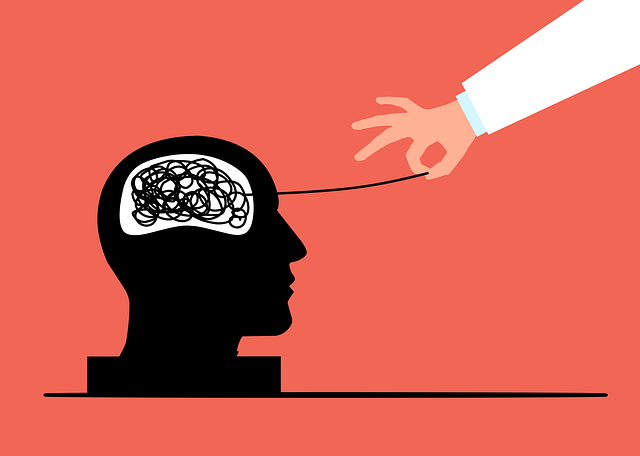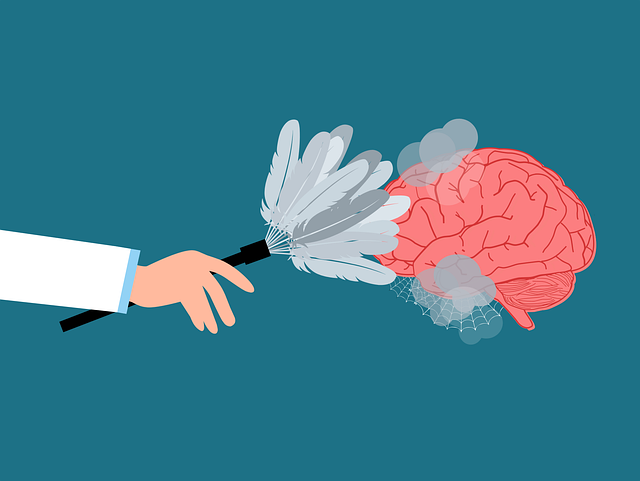Cultural competency is vital in healthcare, ensuring equitable access to care and improved outcomes for diverse patient populations, especially in trauma and mental health treatment. Parker Cognitive Processing Therapy (PCPT) offers a therapeutic approach that tailors care to individual needs by integrating cultural sensitivity, enhancing trust with marginalized communities, and addressing negative thought patterns. Effective cultural competency training should include exploring diverse perspectives, traditional healing practices, and interactive learning, incorporating evidence-based techniques like PCPT for enhanced patient interactions, reduced stigma, and improved care delivery in multicultural contexts. Measuring success involves evaluating concrete improvements in healthcare delivery and patient outcomes, fostering continuous learning and adaptation.
Cultural competency in healthcare is no longer a nice-to-have, but an essential requirement. As diverse patient populations become the norm, understanding and addressing cultural differences can improve patient outcomes and enhance care experiences. This article explores the critical need for change, introducing Parker Cognitive Processing Therapy (PCPT) as a relevant framework. We delve into key training components, implementation strategies, and evaluation methods to ensure successful cultural competency development among healthcare providers.
- Understanding Cultural Competency in Healthcare: The Need for Change
- Defining Parker Cognitive Processing Therapy (PCPT) and its Relevance
- Key Components of Effective Cultural Competency Training
- Implementing PCPT Techniques to Enhance Patient Interactions
- Measuring Success: Evaluation and Continuous Improvement Strategies
Understanding Cultural Competency in Healthcare: The Need for Change

In today’s diverse healthcare landscape, understanding cultural competency is no longer an option but a necessity. Cultural competency refers to the ability to effectively interact and provide quality care to patients from different backgrounds, cultures, and beliefs. It involves recognizing and appreciating the impact of culture on health and healthcare experiences, and adapting practices accordingly. This shift in approach is crucial, especially with the increasing diversity of patient populations, as it ensures equitable access to healthcare services and improves overall patient outcomes.
The need for cultural competency training is evident, particularly when considering complex issues like trauma and mental health. Parker Cognitive Processing Therapy (PCPT), for instance, emphasizes the role of cognitive processes in emotional regulation. In a multicultural context, therapists must be adept at tailoring this therapy to diverse patient needs. By incorporating cultural sensitivity into mental healthcare practice, such as those explored in the Mental Wellness Podcast Series Production, professionals can create safer spaces that foster open communication and effective treatment. This approach is vital for building trust, ensuring patient engagement, and ultimately improving outcomes, especially among marginalized communities.
Defining Parker Cognitive Processing Therapy (PCPT) and its Relevance

Parker Cognitive Processing Therapy (PCPT) is a therapeutic approach designed to help individuals understand and manage their thoughts and emotions more effectively. Developed by Dr. Michael Parker, this therapy focuses on identifying and modifying negative thought patterns that can contribute to various mental health issues, such as stress management, anxiety relief, and depression. By applying mind over matter principles, PCPT empowers people to challenge and change unhelpful cognitive processes.
Relevant in today’s fast-paced world, PCPT is crucial for healthcare providers to integrate into their practice, especially when serving diverse patient populations. This therapy facilitates cultural competency by promoting empathic communication and understanding of patients’ unique perspectives. By learning PCPT, healthcare professionals can enhance their ability to connect with individuals from different backgrounds, ensuring tailored care that addresses both physical and psychological needs.
Key Components of Effective Cultural Competency Training

Effective cultural competency training for healthcare providers involves several key components. It begins with an in-depth understanding of diverse cultures and their unique perspectives on health and wellness, including traditional healing practices that may differ from conventional medical approaches. Training should incorporate interactive workshops, case studies, and role-playing scenarios to foster a deeper comprehension of cultural nuances.
The integration of evidence-based therapeutic techniques, such as Parker Cognitive Processing Therapy, can significantly enhance the impact of training. By combining cultural awareness with therapeutic tools, healthcare professionals become better equipped to address mental illness stigma reduction efforts and provide anxiety relief for patients from diverse backgrounds. Moreover, risk management planning for mental health professionals is facilitated, ensuring they are prepared to navigate complex cultural interactions while delivering quality care.
Implementing PCPT Techniques to Enhance Patient Interactions

Implementing techniques from Parker Cognitive Processing Therapy (PCPT) can significantly enhance patient interactions within healthcare settings. This therapeutic approach equips providers with valuable tools to navigate complex patient relationships, especially when dealing with individuals from diverse cultural backgrounds. By integrating PCPT, healthcare professionals can improve their ability to understand and address patients’ concerns, fears, and past traumas that may impact their current health status. For instance, the therapy emphasizes cognitive restructuring, enabling providers to help patients challenge negative thought patterns and beliefs, which are often rooted in cultural biases or personal experiences.
Through active listening and open dialogue, PCPT facilitates conflict resolution techniques, fostering a safe space for patients to express themselves. This is particularly beneficial in trauma support services as it encourages patients to share their stories and work through past traumas. By incorporating these therapeutic practices into patient interactions, healthcare providers can create a more inclusive environment, improve public awareness campaigns development related to mental health, and ultimately enhance the overall quality of care.
Measuring Success: Evaluation and Continuous Improvement Strategies

Evaluating the effectiveness of cultural competency training is a vital step in ensuring its long-term impact and success. Measuring success goes beyond mere satisfaction surveys; it involves assessing concrete improvements in healthcare delivery and patient outcomes. One effective method is to adopt the Parker Cognitive Processing Therapy (PCPT) framework, which focuses on cognitive biases and their influence on clinical interactions. By analyzing changes in healthcare providers’ decision-making processes and their ability to navigate complex cultural scenarios, trainers can identify areas of improvement.
Regular feedback sessions, peer evaluations, and case study analyses are powerful tools for gauging progress. These strategies facilitate open discussions about challenges faced during the implementation of cultural competency training, especially when addressing Mental Illness Stigma Reduction Efforts. Moreover, they encourage the development of Resilience Building and Confidence Boosting strategies among healthcare providers. Continuous improvement is fostered through iterative learning, ensuring that training programs remain dynamic and responsive to emerging cultural nuances in diverse patient populations.
Cultural competency training, enhanced by techniques like Parker Cognitive Processing Therapy (PCPT), is transforming healthcare delivery. By understanding diverse patient backgrounds and incorporating empathetic communication, healthcare providers can significantly improve patient experiences and outcomes. PCPT’s focus on cognitive processing empowers professionals to navigate complex cultural landscapes, fostering more effective interactions and building stronger relationships with patients from various cultural communities. This article has outlined the critical components of such training, emphasizing its value in today’s diverse healthcare landscape.














